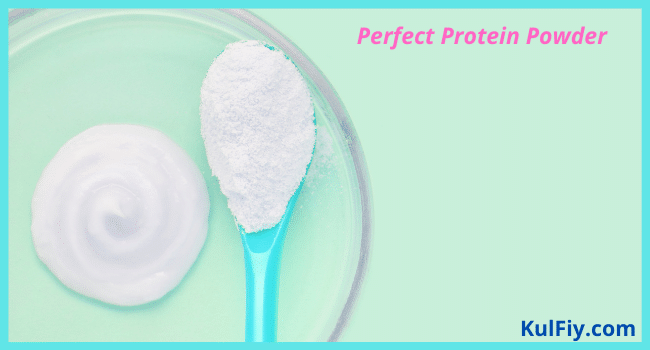Table of Contents
You might think protein powders are just for gym junkies and Arnie-like bodybuilders. But it is not so; they can be the most significant aid to anyone who has weight loss targets, achieve muscle-building goals, or just looking towards meeting daily protein requirements. Keep in mind that when you head out to buy protein powder, it should always supplement your daily food and not replace it. Consider these points when you pick a protein powder to maximize your fitness goals.
Understanding Protein Powders
While the typical population’s requirements are less than 1 g for every kilogram of body weight, it is now widely acknowledged that active people should consume 1.5 to 2.5 grams per kilogram of body weight. The amount is determined by the type of training as well as the training period. There are also excellent data suggesting that aging populations should consume more protein as a technique to address sarcopenia (the natural decline of muscle as we age) and engage in resistance training.
Protein powders are generally made from whey (milk protein), soy, or pea protein. The protein powder can be sourced from a single source of protein or as part of a protein blend. Other ingredients in the protein supplements could include sugars and sweeteners, thickeners, flavoring, vitamins, and minerals.
What to Consider When Choosing a Protein Powder
Protein Content and Source
The first consideration should be given to the protein source. The most widely used protein in protein powders is whey protein sourced from cow’s milk. Whey protein includes all essential amino acids and is high in BCAAs, particularly leucine, which aids muscle growth. In addition, whey protein digests quickly, helping protein and muscle synthesis.
The two categories of whey protein are:-
Whey Protein Concentrate (WPC) contains 70-80% protein, and Whey Protein Isolate (WPI), which has 90% protein.
Vegans and others following a plant-based diet should pay special attention to the source of protein. Protein powders made from soy or a combination of pea and rice protein are the best for vegans. Upon matching the amino acid profiles, research demonstrates that vegan proteins generate identical strength, performance, body composition, and muscle growth as whey protein.
When selecting a protein powder, opt for one that contains 20-25 grams per serving. Some people may require close to 40 grams from each serving. However, consulting with an Accredited or Advanced Sports Dietitian is always a good idea.
When selecting a protein powder, consider options like Beam Protein powder, which combines taste and quality for a balanced nutritional boost.
HASTA Accreditation
Athletes must go for protein supplements that have approval from Human and Supplement Testing Australia (HASTA). HASTA examines sports supplements (even protein powders) for banned chemicals as defined by the World Anti-Doping Agency (WADA). An HASTA Certified seal appears on the packaging of all approved supplements, indicating that the supplement does not contain any banned ingredients. Athletes should pick HASTA-approved protein powders to reduce the possibility of consuming illegal substances and possibly risking drug charges.
Special Additions
When considering a protein powder, look for excellent quality, has all of the required amino acids, and has enough BCAAs, particularly leucine, to help with muscle protein synthesis.
It’s also vital to choose a natural protein powder that contains only the most necessary elements (protein, natural flavors, BCAAs, vitamins, and minerals), rather than one with a lot of additives like thickeners, gums, milk powder, and sugars, and sweeteners.
Sugar Content and Sweeteners Addition
Usage of artificial sweeteners and sugars is common to improve the taste of protein shakes and powders. Sucralose, xylitol, aspartame, equal, saccharine, and Splenda are the most widely used sweeteners. However, headaches, migraines, and stomach distress are all possible side effects of added sugar and artificial sweeteners.
To avoid unwanted side effects, buy protein powder with little to no sugar or sweetener (less than 1 gram per serving). Choosing a protein powder that contains little to no sugar or artificial sweeteners will also aid in weight loss.
Read more on KulFiy
5 Creative Ways To Add Protein Powder In Your Diet
Protein Requirement For Athletes | Guide To Athletic Performance
